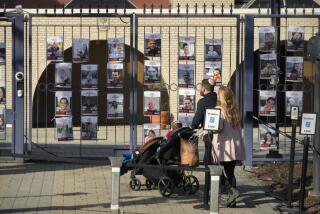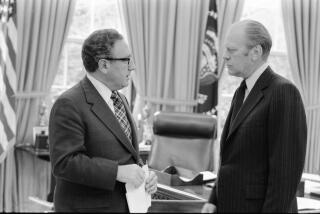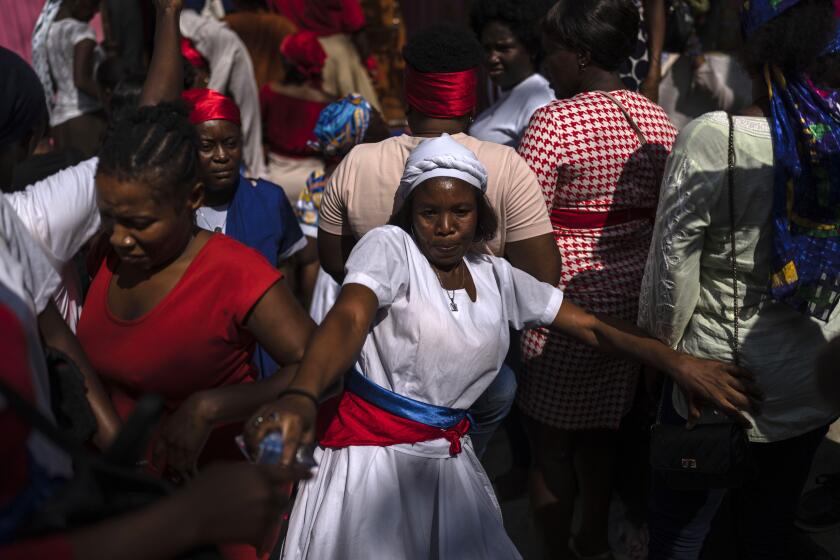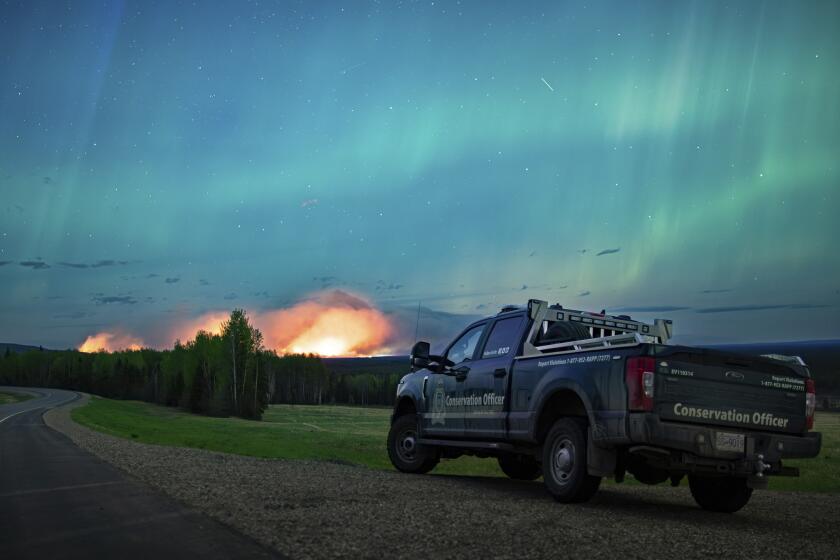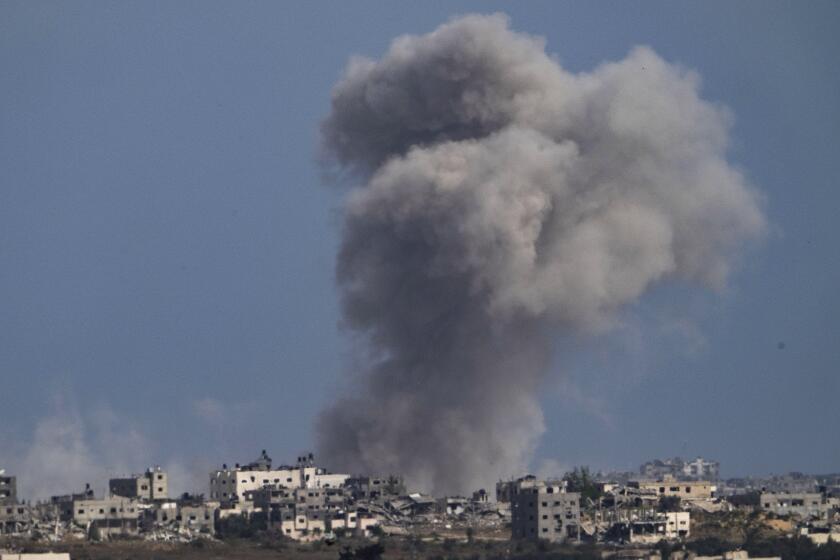Diplomat Aided Common Folk
Before a bomb devastated the U.S. Embassy in Nairobi, a line of Kenyans and Americans seeking aid would form outside the building every morning. Some hoped for visas. Others had been robbed. Each one faced some dilemma.
It was Julian Bartley’s job to make sure that not a soul was left by the end of the day.
Other senior embassy staffers focused their attention on treaties, contracts or policies. As consul general, Bartley was the embassy’s outreach officer for everyday expatriates and locals. He made their problems his own.
“The consul general is the public face of the embassy,” said a State Department official. And, by all accounts, the gregarious Bartley relished the role.
“He exuded diplomacy,” said Flynn Lundh, who knew the Bartley family before recently moving from Nairobi to Orange County. “He was very charming.”
Friday morning, the career diplomat was due at the weekly meeting of the senior staff on the embassy’s fourth floor. He was running late, said a colleague in Nairobi, with “the million things that had to be done at the consulate.”
The bomb that tore through the embassy about 10:30 a.m. spared officials gathered in Ambassador Prudence Bushnell’s office. But Bartley, on his way upstairs, was caught by the explosion. His son, Jay, a college student working in the embassy for the summer, was also killed in the blast.
Bushnell, who was meeting with a Kenyan official in the nearby Cooperative Bank House, was slightly injured in the attack.
Jay Bartley’s body was found soon after the explosion, but Susan Bartley retained some hope that her husband might still be alive in the wreckage. Sunday, however, the diplomat’s remains were identified in a private morgue after he had been misidentified as a Kenyan.
One of the relatively few African Americans to rise so high in the foreign service, Bartley, 55, dreamed of becoming an ambassador one day--a promotion that those close to him said was just a matter of time.
As he hopscotched around the world, from South America to Asia to the Middle East to his final posting in East Africa, Bartley soaked up the cultures and languages along the way. From his postings in the Dominican Republic and Colombia, he learned to speak Spanish and dance the merengue. He fondly recalled his stints in Spain, Israel and South Korea.
“After his assignment in Kenya, there would have been nothing standing in his way for an ambassador assignment,” said Rep. Bennie G. Thompson (D-Miss.), who knew Bartley for more than 20 years and had planned to lobby for such a job for him.
Bartley, who grew up in Queens, N.Y., rose within a mostly white foreign service.
“He had a strong sense that for African Americans to have a say in foreign policy, you have to be where it’s being decided,” said Charles Baquet, deputy director of the Peace Corps and one of Bartley’s African American mentors over the years.
As it turns out, instead of recommending an ambassadorship for Bartley, members of the Congressional Black Caucus sent a letter to President Clinton on Monday recommending that both Bartley and his 20-year-old son be buried at Arlington National Cemetery.
The younger Bartley had already demonstrated his father’s interest in the world. He joined his parents in Kenya for high school and decided to stay on as an international relations major at the United States International University, a San Diego-based school with a Nairobi campus where Bartley enrolled.
“We loved to discuss politics, international relations and philosophy,” said Karin Roest, a classmate. “He was a real deep thinker, loved adventure and never took a moment of life for granted.”
Friends recalled that Jay Bartley frequented Nairobi’s all-night discos, spent weekends at the beach and rode horses in the country. In his summer job, he had been learning about the functioning of an embassy from the ground up. Stationed in the general services office, he would help with maintenance or whatever else needed to be done.
The elder Bartley used the same methodical approach to his career, which began with a Peace Corps stint in Western Samoa in 1967.
“He wanted to be of service to people, especially people who had not had the advantages that he had, and that’s what led him to the Peace Corps,” said Robert J. Hudson, who taught literature to Bartley at Tennessee State University in the 1960s and had stayed in touch with him.
“He took his work very seriously but saw that, within that, there was room to be a person, to communicate as a human being,” said longtime diplomat Terence Todman, who encouraged Bartley throughout his career.
After numerous overseas postings, Bartley studied at the National War College in 1995 and spent two years as a foreign affairs fellow in Thompson’s congressional office. But it was his 24 years in the field that he relished most.
“He prided himself on identifying with the local people,” Thompson said.
In Washington, even those diplomats who had never met Bartley or the other slain embassy workers felt the blow of their deaths.
“On the wall of the State Department, there is a memorial plaque that lists the names of individuals who have been killed in the line of duty,” said Frank Miller, vice president of the American Foreign Service Assn., which represents 23,000 active and retired foreign service employees.
“Before this incident, there were 178 names. Now, we have to put up 12 more.”
One will be the name of an almost ambassador; the other, of someone just starting his career.
Times staff writer Marjorie Miller in Nairobi contributed to this report.
More to Read
Start your day right
Sign up for Essential California for news, features and recommendations from the L.A. Times and beyond in your inbox six days a week.
You may occasionally receive promotional content from the Los Angeles Times.

